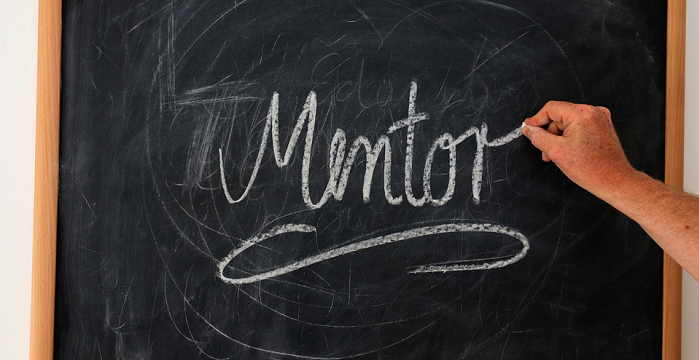Peer mentoring: getting past 'everything's fine'
Kay Guccione (@kayguccione) works at the University of Sheffield designing mentoring and coaching partnerships for PhD and postdoc researchers. Here she explains how to keep peer mentoring relationships going if you're experiencing a six-month slump.
Are you a PhD peer-mentor? Or have you been assigned a peer mentor for your PhD first year? If you started your mentoring partnership in October, you’re now about half way through your programme. So, how is it working for you? Is it a good use of your time? Have you run out of things to say? Or have you got a feeling you don’t really know what you should be doing together?
From experience of peer mentoring design, we know that new PhD students value being connected to another student in their new department, and that it works well as a buddy system in the first weeks of orientation. However, evaluation data tell us that about now, the six-month point, is the time when the buddy relationship stops being useful because new students have found their way around, and fallen into the patterns and habits of the PhD.
As mentees we can often miss the point of mentoring, and think that because we don’t have a problem per se, there’s nothing to say to a mentor. We don’t want to waste their time, so we don’t get in touch. But consider, mentoring isn’t for ‘problems’ it’s for planning. And very handily, taking time out for an hour here or there proactively heads off potential problems before they become PhD stressors.
Maybe now then, is the time to rethink the peer mentoring relationship and make it work for the second half of the first year? Mentoring someone is more than just the giving and receiving of advice. That can be part of it, but mentors have a responsibility to let go of control, and put the mentee in the driving seat. And mentees have a responsibility to keep in touch with the mentor and decide what to talk about.
The point of mentoring isn't to transmit facts to other people, but to open up thinking and creativity for crafting solutions to problems. A good peer-mentor:
builds trust: shows empathy, suspends judgement, keeps confidentiality
does way more listening than talking: silence equals thinking time, be comfortable with silence
helps the mentee be proactive, not reactive: asks, what’s on the horizon?
lets the mentee make their own choices: what worked for you might not work for them
gets past the superficial 'I’m fine’...
To get beyond the awkward non-starter “How are things?” “Oh fine, I’m fine”… mentors could use the ideas below. Mentees could even bring this along to their next mentoring session.
What got you here won't get you there. Talk through the questions:
Is the PhD what you expected? What’s the same as your previous study/job? What’s different?
Do you know how academia works? What’s your role in the system?
How are you getting information about what’s expected of you? What other sources are available?
How are you keeping in touch with your supervisor? How are you managing that relationship?
What wastes your time and energy? And what’s one thing you could change to protect your time and energy?
Look where you're headed, play the long game.
What’s on the horizon for you that you need to think about now?
What are you finding most challenging, how are you feeling about it?
Have you had a look at a PhD thesis? Do you know what you’re aiming to produce?
What bits of your thesis could you be writing now, even if it’s just an hour a week?
Is your working pattern sustainable? Will you be able to maintain this effort level for the next 3 years?
Planning a conversation with a supervisor. Is there something that needs resolving and can this tool help you plan that conversation together? It’s awkward I know, but any supervisor difficulties you’re having right now, will be sustained if you don’t take action to resolve them.
What isn't said? What isn't talked about? As the final part of the mentoring meeting I like to ask my own mentees what it is they’ve not said, what have they held back on, or avoided talking about. They don’t have to tell me what it is, or tell me about it, just acknowledge it, and think about it as mentoring ‘homework’.
I hope these ideas reinvigorate your mentoring partnerships. If you aren’t in a mentoring partnership, why not just find a buddy or two and make some time to think deeply and critically about what you are doing here. It’s a PhD, that’s what you’re good at!




